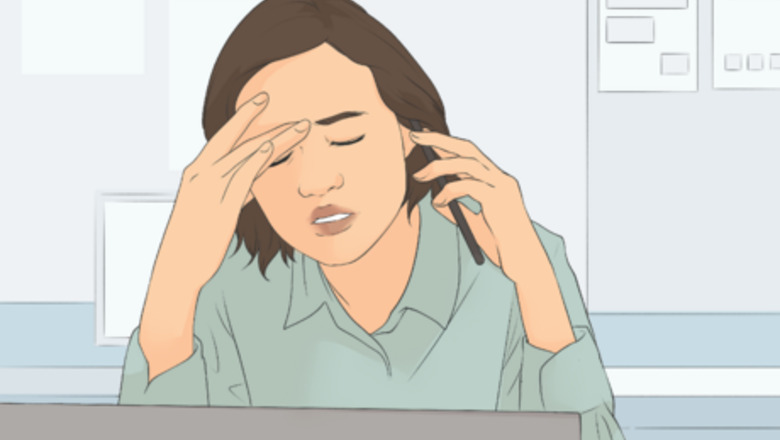
views
Is it normal to mentally check out?
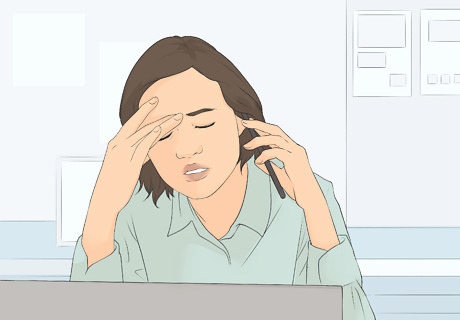
Yes, everybody checks out from time to time. Nobody can be locked in and focused 24/7. The human brain just isn’t designed to operate at such a high level for so long, so if you occasionally space out or drift off, don’t sweat it. So long as you mostly find your life, work, relationship, or whatever else you check out of otherwise fulfilling and meaningful, it’s no big deal. Roughly 60% of all people report feeling bored or checked out at least once a week, so don’t be hard on yourself if you’re occasionally spacing out.

It’s not normal if it’s interfering with your daily life. If you find yourself checking out so often or so intensely that you’re losing track of things you have to do, you’re neglecting responsibilities, or you feel like you’re becoming depressed, it’s not normal. Checking out should be a short and uncommon activity—not something that keeps you from pursuing goals or feeling good about yourself. There’s a big difference between spacing out for a few minutes because you’re doing something boring and being unable to engage in a relationship because it no longer feels real to you. The first one is totally normal. The second is a problem that needs addressing.
Where do people tend to check out?
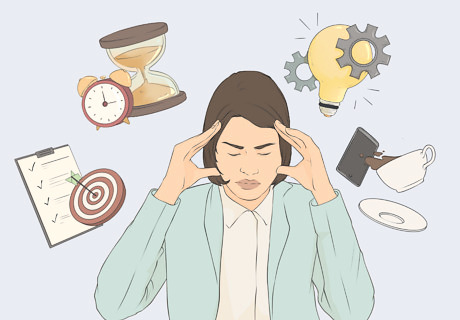
At the workplace If you’re facing a big workload, you’ve been recently promoted and have new responsibilities, or you’re simply frustrated with a client or coworker, it’s natural for you to find yourself checking out more often than you normally do. You may also find yourself checking out more often than normal if your work-life balance has shifted for the worse, or if you’re unhappy with a major change at your job. People also check out when they’re working a job they don’t enjoy. If you’re not happy at work, it’s hard to stay focused. If you’re struggling to engage or stay checked in regardless of what you do at work, see a doctor to get checked for ADHD. It’s possible you’re checking out because of something outside of your control.

In relationships People mentally check out of romantic and platonic relationships all the time. This can happen if someone feels like the relationship is too high-maintenance or if the other person constantly encroaches on your alone time. This can also be a sign that a relationship is nearing the end of its natural life—especially if you find yourself checking out during one-on-one time with the other person. People also check out if they feel like the other person isn’t appreciating them appropriately. It’s hard to muster up the energy to be present and pay attention if you don’t think the other person is treating you right. If you’re struggling to connect with people in general and you find yourself emotionally detached, you may be struggling with a mental health issue. See a therapist to get some professional help.

In your personal life A lot of people will feel a little checked out from themselves every now and then. This can happen due to some kind of existential issue, a mid-life crisis, or even just plain old boredom. This can also happen if your daily routines have become especially repetitive and you just need a break. On the other side of things, you may be experiencing something more serious. Feeling checked out of your life can be a sign of depression, a response to serious trauma, or a side effect of some other emotional or mental issue.
Signs You’re Checked Out

You don’t feel as motivated as you used to. If you used to feel a little pep in your step when it came to getting up in the morning and now things just aren’t as vibrant as they used to be, it could be a sign you’re not as motivated as you were before. If you aren’t looking forward to your job, you’re not happy with your marriage, or you’re just not content, it’s easy to lose a little bit of that fire you used to have.
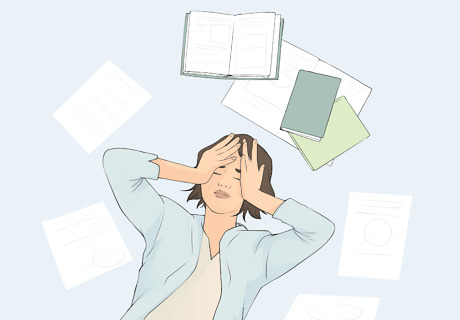
You’re struggling to remember details. When you check out, you’re no longer living in the moment. That means you’ll be prone to missing stuff. Maybe your coworker said something important and it just didn’t click that it was essential information, or perhaps your mother told you to wish your grandma happy birthday and you totally spaced out. It’s hard to commit information to memory if you aren’t present. This will often present itself as tardiness. If you find yourself constantly running late and you’re not really sure why, it’s a major signal you’re checked out.

You’re not as productive as you used to be. If you’re in the groove, tuned in, and aware, you’re going to have an easier time crossing stuff off of your to-do list. But if you find yourself constantly checking out, it’ll be harder to be productive. Every time you check out, you have to put the mental energy into restarting again when you want to get back on track. As an example, if you used to be amped for your job as a teacher and you were always on top of your lesson plans but now you’re falling behind on your grading and unit planning, it’s a sign you’re spacing out a bit.

You’re looking for other things to do. If you’re checking out because you’re under-stimulated, it’s natural that you’ll want to redirect your energy towards something you find more appealing. If you’re constantly looking for new things to do, it’s a major sign you’re mentally losing your focus. This is a big signal that you aren’t feeling fulfilled wherever you keep getting bored. For example, if you keep trying to fidget or occupy your mind when you’re hanging out with an old friend, it’s likely a signal that you and your old friend don’t have much in common with one another anymore.

You’re more tired than usual, even when you sleep plenty. Checking out frequently is one of the common symptoms of burnout, alongside one other equally frustrating problem—an inability to get a good night’s rest. If you find nothing you’re doing can help you get a complete night’s sleep and you’re spacing out repeatedly, it’s almost positively time for a break.
Checking Back In
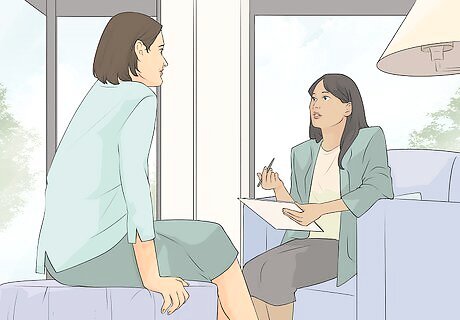
Reflect on any underlying problems you haven’t addressed. If you aren’t simply checking out because you’re bored, take some time to take a self-inventory. Explore the way you feel, talk about the checking out with a loved one or therapist, and really try to lock in what’s triggering this desire to “look away.” At work: Perhaps you’re in an unfulfilling job and it’s time to start job hunting, or you’re unhappy in your current role, and talking to your boss about changing positions is the solution. In a relationship: You may be checking out because you know deep in your heart that the relationship is over. On the other hand, maybe you just need to reconnect with your partner and get to know one another again. In your life: Try to figure out what gives you the most meaning in life and pursue that. Maybe it’s time to go back to school for that career change, or perhaps you need a little jolt to get back on your primary gameplan.
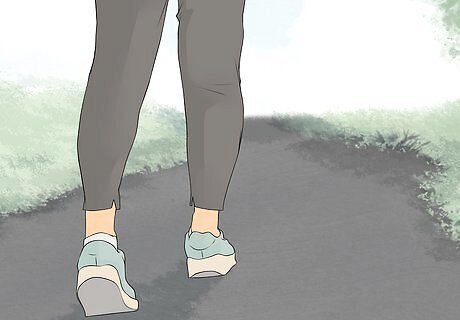
Use mindfulness techniques to reset your headspace. When you find yourself drifting off into the realm of checked-out, stop yourself with a mindfulness trick. One of these maneuvers can force your mind and body to snap back to being as present as you want to be. Focused breathing: Take a single long, deep breath and close your eyes. Focus on that single breath as the air enters your body and leaves through your nose. Repeat this process as needed until you feel calm, ready, and aware. Walking meditation: Excuse yourself and find a quiet place to walk. For a few minutes, walk back and forth in a line while focusing on the sensation of walking. Really lock into what your body is doing. When you feel more alert, go back to what you were doing. Hold an ice cube or pinch yourself: Grab something freezing and let it melt in your hands for a few seconds or pinch yourself. A small and unpleasant sensation will pull your mind back into your body so you can get back to focusing.
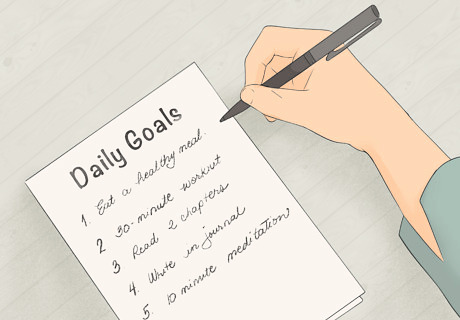
Set small goals to work on improving your overall headspace. If you try to make huge, sweeping changes to stop checking out and re-motivate yourself, it’s going to feel really overwhelming. Instead, pick 1-2 small goals to achieve every day. As you keep succeeding, you’ll build the momentum you need to change your overall orientation towards your job, life, or loved one. At work: Aim to complete 1-2 specific tasks you’ve been putting off every day. It could be cleaning your desk, completing cold calls, or doing documentation on time. In a relationship: Pick a few things you really want to improve on. Perhaps it’s checking in with your spouse after work and really connecting for 15-30 minutes, or ensuring you text your best friend once a day. In your life: Don’t try to totally revamp overnight. If you want to lose weight, focus on exercising for 10-15 minutes a day, or eat one healthier meal. If you want to read more, start small with short stories and poems instead of picking up War and Peace.

Try to reconnect with the important people around you. Everybody needs a support system to feel connected to the world. If you don’t feel like you’re close to the people around you, make an active effort to reconnect. You’ll naturally stop checking out if you’re more in tune with others. At work: Aim to really be a team player instead of blindly completing tasks. Try to hang out with coworkers or peers during lunch and at the water cooler. Consider even inviting a coworker you like to hang out after a shift! In a relationship: Set aside more time to genuinely foster your relationship with the person in question. Skip a group hangout to spend time with just the two of you. Make an effort to really talk and connect at least once a day. In your life: Say yes to things. Even if you really don’t want to go to a party, muster the strength to show up. If someone asks you to hang out, say yes even if you aren’t super into it. The extra opportunities for new friends will really add up.
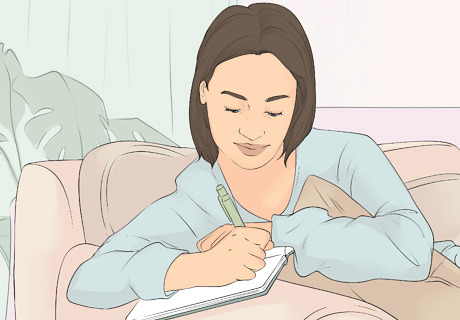
Engage in self-care during your free time. In your spare time, try to avoid mindlessly watching TV on the couch or scrolling through your phone. Take the extra effort to really care for your mind and body. Whether that’s a long bath, spending time pursuing your favorite hobby, or working out after a few days off, do it—self-care is essential. At work: When you get home from work, try to recharge your batteries. Don’t skip exercise, get plenty of sleep, and don’t let work dominate your time at home. If you’ve got to turn your phone off to avoid calls from the boss, do it. In a relationship: Make sure that you have plenty of things going on outside of your romantic relationships. If you start to lose yourself, it can feel like you’re not you anymore. See your friends and family, go out by yourself, and have fun at home alone! In your life: Make sure that you have something you care about. If you feel like you’re missing a passion project, perhaps it’s time to explore a new hobby.
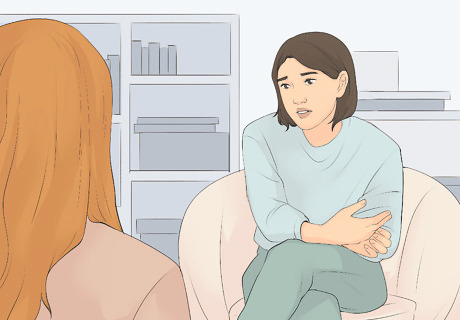
Reach out for help if you think you need support. If you’ve taken steps to make a change in your life for the better and you just feel like you can’t shake the “checked out” feeling, perhaps it’s time to get some support. There is absolutely nothing wrong with seeing a therapist or counselor. In fact, it takes bravery to know you need support. Signs it’s time for help include: At work: You’re anxious to go to work, even after taking steps to change roles or improve your work-life balance. The idea of getting up on work days is scary or depressing. In a relationship: You continue to feel disconnected from the important people in your life, you begin to self-isolate, or you feel alone even when other people are around. In your life: You don’t feel like you know what you’re doing anymore, you’re depressed, you’re relying on alcohol or drugs to numb yourself, or you just generally feel stuck.


















Comments
0 comment